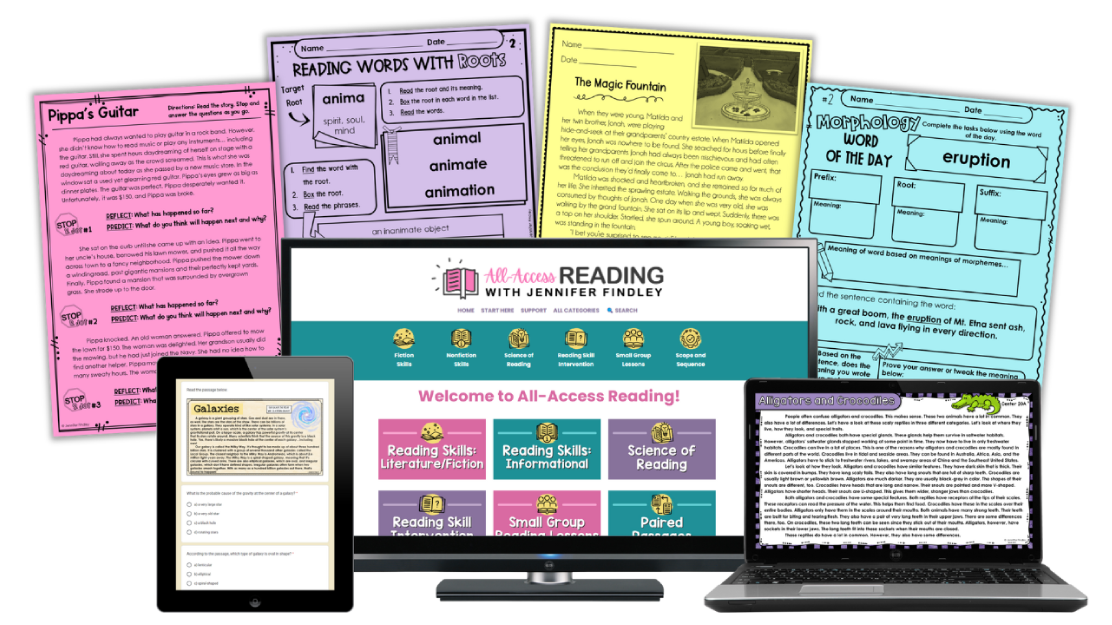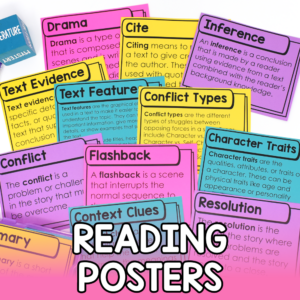If you’ve ever felt stuck trying to support students who either won’t start their work or rush through it so fast you wonder if they even tried, you’re not alone.
This was one of the challenges I faced as a teacher, and let’s be honest—college didn’t exactly prepare us for managing either of these situations.
That’s why I put together some practical strategies that really worked for me, and I want to share them with you. Whether you’re dealing with students who avoid work or those who fly through it at lightning speed, I’ve got you covered.
And if you’re the kind of person who likes having a cheat sheet and a quick video walkthrough to refer back to, you can grab that here.
Let’s dive in!
Supporting Students Who Won’t Finish
The first thing I always tell myself in this situation is that my students want to succeed. Even if they don’t seem like it, I truly believe that deep down, they do. Starting from this mindset helps me focus on finding and removing the barriers that are holding them back.
Here’s where I start:
Look for academic issues.
Sometimes students avoid work because they’re struggling academically and don’t want anyone to notice. It could be a reading level issue, a gap in foundational skills, or something they’ve been hiding for a while. I always dig into assessment data, talk to previous teachers, and figure out what’s really going on. Once you know, you can tweak your approach—maybe scaffold their assignments, adjust the difficulty, or give them a boost in confidence by starting with smaller wins.
Check their motivation.
If it’s not academic, it might be motivation. I’m not talking about turning your classroom into an escape room, though. It’s the little things that can make a big difference, like giving students choices or letting them work with a partner. Sometimes even small adjustments can reignite their interest and help them get started.
Not motivation or academic issues? Try these.
Set clear expectations.
I’ve found that some students just need more structure to feel confident about finishing their work.
Breaking tasks into steps, using a checklist, or giving them a visual plan can make all the difference. It’s about setting them up for success without overwhelming them.
Strengthen relationships.
This one is huge. If a student doesn’t trust you or doesn’t feel safe failing in front of you or their peers, they’re not going to try. Building that relationship while supporting them academically is what makes everything else work.
Supporting Students Who Rush Through Their Work
Now, let’s talk about the students who finish their work in record time, but when you look at what they’ve done, it’s clear they’ve rushed.
Here’s how I approach this:
First, I check the quality of their work. Are they meeting the expectations you’ve set?
If not, I take them back to the basics. This might mean revisiting those expectations and making them even clearer. I’ve used strategies like:
- Giving students examples of what high-quality work looks like.
- Creating checklists or rubrics that outline exactly what I’m looking for.
- Using fun comparisons, like calling them “detectives building a case,” to make it feel more engaging while reinforcing the need for evidence or detail.
If their work is good and they’re just finishing quickly because they’re flying through it, I move into enrichment and extension. A few things I’ve tried:
- Offering a choice menu of activities that are ready to go.
- Encouraging independent study projects on topics they’re excited about.
One More Tip
Whether you’re working with students who won’t finish or those who rush, my best advice is to make it easy for them to succeed.
That might mean giving them a starting point with a sentence stem, breaking a task into smaller steps, or making the instructions crystal clear. Students want to succeed. Our job is to clear the path for them.
If these strategies feel like something you can use, I’d love to send you the video walkthrough and a cheat sheet that lays everything out step by step. Click here to grab them for free.








Leave a Comment